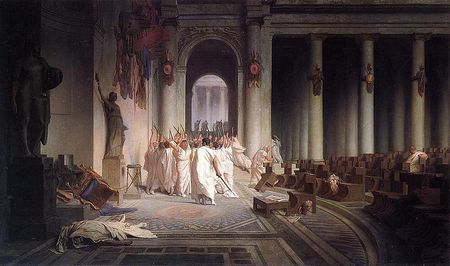User:TheHumbucker/tedious
Tedious is another word for uninteresting, which is the opposite of interesting - hence the "un-" prefix - which is the opposite of other words that are not the opposite of tedious, such as dull and tiresome. Tiresome is a nice word meaning "some fatigue" or a small, though not completely negligible, number of tires, which go on cars, trucks, bicycles, tricycles, which are bicycles with three wheels, motorcycles, which are tricycles with a motor - as the word suggests - but with one less wheel, and, as such, can be found in any front yard south of Kentucky. Tiresome is not tedious, however, because it has different letters making up the word, though its meaning is essentially the same, making it a synonym of tiresome, though that does not mean that it, "it" being "tedious" here, not tiresome, can also mean some tires because that's what tiresome can mean, but not tedious. Tedious is the grammar of the last sentence. Tedious is what the last sentence wasn't, but is what this sentence is because of the massive amounts of commas used to split, awkwardly, and in some points, unnecessarily, the meaning of the sentence, which is like the thought that this sentence is trying to encapsulate with that thought being, itself, tedious, because of the run-on and rambling nature of said thought that is overly concerned with the concept of cause-and-effect, as shown by the overuse of the word "because."
That was tedious, and this is tedious, mainly because of the complete lack of any ability to wrap up any wandering thought process into a sentence of less than forty or so words, as if this were the last chapter of James Joyce's Ulysses and the main goal of it were to make the reader try to read the whole thing in one breath and suddenly offering no commas or punctuation whatsoever in a kind of cruel joke that banked on the hope that said reader had by now realized that it was so chock full of punctuation and opportunities to pause for breath that he or she went into this sentence thinking that he or she didn't have to prepare for a donkey kick to the lungs.
History of Usage[edit | edit source]
Early History[edit | edit source]
The early etymology of tedious is, itself, rather tiresome mainly because of English's position as the bastard language of the world; a natural position for it to take, considering the history of the cultures that have, over the eons of history since the Roman Empire, become what was once known as the British Empire but which eventually split into Great Britain and, among others, the United States of America through massive conflicts and the subsequent migrations; however, it is also tiresome because the French are involved. Derived from the Olde French noun teḍieus, which means, among other things, tiresome and is, in it's own turn, derived from the Medieval Church Latin taediosus which means, among other things, tiresome and which is, again in it's own turn, derived from Classical Latin, as many, if not all, words in Medieval Church Latin are, in this case coming from the neuter noun of the second declension taedium which declines taedius, taedium, taedi, taedo, taedo, taedi, taedos, taedorum, taedis, taedis and which means, among other things, tiresome, but also repetitive.
Used by many famous Romans in daily life, and by many not famous Romans in weekly life, most typically in such phrasings as taedium hic est (This is tedious), taedius sunt longissima (Tedious things are very long), quies te taedium stultum (Shut up, you tedious fool), quotidiana, fossae fodere sub ardenti sole non sperans stimuleris crabrones prandium dum sine missing gutta bibendum taedium est quidem (Digging ditches everyday in the burning sun and hoping not to be stung by hornets while missing lunch and without a drop to drink is a tedious thing indeed), and quies te taedium stultum, quies! (Shut up, you tedious fool, shut up!). It has been found scrawled, seemingly in jest but according to arguments presented by Fischer and Thomaston in the scholarly periodical Tedious Arguments possibly in pure seriousness or attempted satire, on not only ruins of the walls of ancient Roman houses and other buildings but also shards of clay and other earthenware pottery found at the sites of Pompeii, Herculaneum and Syracuse. Many of these scrawlings show particularly pathetic grammar, so horrible, in fact, that it makes modern day high school Latin learners, even in their first year, look remotely competent, as these writings occasionally have possession being shown in the dative and indirect statement constructions being used instead of the supine, which is actually something that is more college level Latin rather than first year high school Latin, so isn't that bad of a thing to do, due to its more or less advanced technicality, but is still absolutely inexcusable for a native speaker, or writer, or communicator, of Latin.
The most famous usage of the word tedious was at the assassination on the Ides of March of Julius Caesar by Brutus and numerous other Roman senators, supposedly including but not limited to - according to various sources including but not limited to Lucius Mestrius Plutarchus, also known as Plutarch, Flavius Eutropius, known as Eutropius, and Edward Gibbon, better known as Edward Gibbon, whose epic history of the Roman Empire, titled The Decline and Fall of the Roman Empire is an excessively tedious work in itself - Gaius Cassius Longinus, Marcus Junius Brutus, Lucius Tillius Cimber, Servius Sulpicius Galba, Quintus Ligarius, Lucius Minucius Basilus, Publius Servilius Casca Longus, Gaius Servilius Casca, Gaius Trebonius, Decimus Junius Brutus Albinus, Pacuvius Antistius Labeo, Publius Sextius Naso, Marcus Spurius, Rubrius Ruga and between 6 and 45 other individuals with very Roman names and presumably massive noses, a lack of facial hair and thoroughly intense hatred of dictators, when Caesar declared, after being stabbed 15 times already, "How tedious of you! Do it right, like a goddamn donkey kick to the lungs."
Cicero was also tedious. But he was an orator and a politician, so he can be excused for writing such tedious volumes with such tedious titles as On Laws, On Duties, On the Republic and About the Ends of Goods and Evils, which is the source of Lorem ipsum, which is the source and inspiration for much if not all of this article, which is the source of nothing, except, by now, your confusion and, in the near future, the headache whose source is the nagging question "Why did I read so much of that article?"
The last two paragraphs were, as you can probably tell, quite tedious, consisting of a grand total of three sentences. In fact, this paragraph alone has as many sentences as the last two did, if you can imagine such a thing. Potatoes.
Middle History[edit | edit source]
After such tedious overuse, there followed a tedious period of tedious non-use that came after the decline and fall of the Roman Empire and which directly resulted in the Dark Ages which were, themselves, rather tedious times. The role that the word tedious had on the Roman Empire and subsequent Dark Ages cannot be understated as, according to Harris in his study Tediousness destroyed Rome, though indirectly, Nero's madness was not, in fact, caused by lead poisoning from the deteriorating metal to be found in all of Rome's plumbing and, therefore, also in the drinking water; instead, it was caused by his incessant and intense dislike for the word tedious and anything that reminded him of it, including all things tedious and tiresome. While Nero didn't have to worry about objects with some tires, such as cars, trucks, bicycles, tricycles - which are bicycles with three wheels - and motorcycles (tricycles with a motor, as the word suggests, but with one less wheel), as the closest thing to be encountered in the ancient world were chariots - which have wheels, not tires - he did have to worry about tedious things, which do not include cars, trucks, bicycles, tricycles and blah blah blah, but did include things that could be found in the ancient world, such as boredom. As a result, Nero lived a life of rebelling against anything and all things that he could remotely associate with tediousness, appointing various animals to high senatorial positions, suddenly nuking Greece, and dancing and fiddling through the forum after setting Rome ablaze by lighting a popcorn fart on fire.
With Rome weakened from being burned to a cinder, Visigoths and Huns invaded Rome, vandalizing the city and area in more ways than just graffiti. The center of the ancient world, home of the Roman Empire and creator of Roman culture, classical architecture, and the idea of feeding Christians to rabid lions smoldering, the Dark Ages set in, and the world grew dim, even, some critics say, dark, from tediousness.
While tediousness was the way of the Dark Ages, the attitude of the times, the zeitgeist of the era, the Zen of the period, the status quo of the status quo, the something of the then, the thing of the years, the method of that madness, the word was morbidly underused, it's meaning forgotten. Like many things classical and ancient, old and antiquated, crinkly and creaky, wrinkled and worth-money-on-Antiques-Roadshow-if-in-mint-condition, the word tedious, after such dominance and importance in the Ancient World, all but disappeared in the Middle Ages. It was, however, revived in 1505, on the streets of Dorchester, England, as a form of primitive rhyming slang created by school children to communicate messages while in class in the local monastery. Meant as a stand-in for the word "retarded," it shows the incredibly primitive nature of 16th century rhyming slang, the limited lingual skills of the students, and the inability of priests to teach rudimentary lessons like homonyms and rhyming. It traveled quickly, as bad slang often does, and was soon being used by immature teens across much of England, including London but also, more importantly, in Stratford-upon-Avon, where it was picked up by one William Shakespeare, who some people of the modern era might have heard of.
Despite being outshone by such contemporaries as Kip Marlowe and Ben Jonson, whose plays, to this day, are in much wider circulation than his own, Shakespeare could be said to have single-handedly resurrected the word tedious from it's depressing lack of use in the Dark Ages with his plays, poems, and graphic novels, 25 of which contained the word "tedious" as either an adjective, noun, direct object or food choice, for a grand, or rather tedious, total of 49 uses in the entirety of his corpus. The adverbial form of "tedious," "tediously," also appears in 2 of Shakespeare's works, Henry V and Troilus and Cressida, while the "-ness" form of "tedious," namely "tediousness," appears 4 more times, in Richard II, Much Ado About Nothing, The Merchant of Venice and one of his lesser known works, the philosophical tract/biography Hamlet [1].
Late History[edit | edit source]
- ↑ title=Shakespeare's Words The Words he used. Shakespeare.

